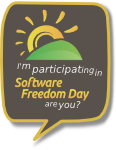| 09:00 / 09:30 |
Registration & event presentation |
|
| 09:30 / 10:00 |
Cloud, Open Source or both? Understanding what “Cloud” really is. The definition, the services, the good, the bad and the ugly. There are very useful aspects of the Cloud to consider but there are also some issues that have security, economical and ethical impacts you may have not considered. |
Paolo Vecchi
Omnis Systems |
| 10:00 / 10:30 |
How you could help the Public Sector in being more efficient by offering your services through G-Cloud and how we can help you getting there faster. |
Chris Farthing
Advice Cloud |
| 10:30 / 11:00 |
Providing “Cloud” services since before it was cool. Moving bits for UK businesses.
|
Joe Kerr
FastNet |
| 11:00 / 11:30 |
Coffee break & time for networking/questions |
|
| 11:30 / 12:00 |
Securing your Cloud identity with Single Sign-On and strong authentication |
Giuseppe Paternò
SecurePass |
| 12:00 / 12:30 |
Local government representative from London talking about their experience with Open Source and Open Alliances that could be formed between organisations to share code and experiences (Awaiting confirmation and full speech description) |
TBA |
| 12:30 / 13:30 |
Lunch break and networking |
|
| 13:30 / 14:00 |
Technology Choices for Business Strategy
Businesses compete fiercely in an ever faster changing market. Public bodies too must deliver better for less. Their strategic response is to focus on users, iterate products, drive down costs, design for easy change, share knowledge and experience, and widen access to more kinds of suppliers and innovation. Find out how your technology choices can support business aims.
Tariq Rashid, speaking in a personal capacity, previously leading on open source for the Cabinet Office. |
Tariq Rashid |
| 14:00 / 14:30 |
Open what? Does Open Source matter to my business? It may matter as, like it or not, you are using a lot of it but your suppliers don’t want to tell you.
We will also look at examples of how IT resellers let down their customers by selling them the wrong solutions for the job and how Councils spend (badly?) our money…
… and at a few tools, including Collax V-Cube & Business Server, that businesses can adopt to consolidate their IT infrastructure, simplify its management and reduce costs.
|
Paolo Vecchi
Omnis Systems |
| 14:30 / 15:00 |
Zarafa Communication Platform a safer & cost-effective way to communicate
Zarafa has always been the best drop-in replacement for Microsoft Exchange but now is taking its ambitions further. With the inclusion of telephony, video conferencing, file & document sharing and many other features Zarafa is now ready to take on Office365 and GoogleApps. What’s the point? You can control your data & your privacy, integrate your applications and at the same time spend even less than by using general purpose Cloud applications.
Zarafa Communication Platform can be installed on Linux distributions like RedHat, Ubuntu and Debian. In this presentation it will be shown running on Univention Corporate Server which allows you to manage your Linux based infrastructure using a professionally designed web interface.
|
Marco Welter
Zarafa |
| 15:00 / 15:30 |
LibreOffice-from-Collabora provides an enterprise hardened and supported build of the world’s most popular Open Source ‘Office’ software LibreOffice. Large Corporate and Public Sector organisations now have a secure and long term supported alternative to proprietary Office software. |
Tim Eyles
Collabora |
| 15:30 / 16:00 |
Coffee break, networking, QA |
|
| 16:00 / 16:30 |
Reducing costs and complexity. Open Source based solutions for Windows and Linux desktop virtualisation |
Mike Trevor
Cutter Project |
| 16:30 / 17:00 |
Entando, the most agile way to share informations and connect to the “Internet of Things”
|
Rinaldo Bonazzo
Entando
|
| 17:00 / 17:30 |
How Linux and Open Source platforms allow us manage millions of emails and contacts on our mailing and CRM solutions |
Andrew Mann
Synchromedia |
| 17:30 / 18:30 |
QA, networking, beers, wine. |
|
 Debian 8, codenamed Jessie, will be the next stable release of the Debian GNU/Linux operating system.
Debian 8, codenamed Jessie, will be the next stable release of the Debian GNU/Linux operating system.
 EU open source news site
EU open source news site  Hamburg’s Green want to wean the city council off its Microsoft dependency and are pointing to Munich city council’s use of Linux and free and open source software, German IT news website
Hamburg’s Green want to wean the city council off its Microsoft dependency and are pointing to Munich city council’s use of Linux and free and open source software, German IT news website  On the occasion of the impending
On the occasion of the impending 

 It’s under a week to
It’s under a week to